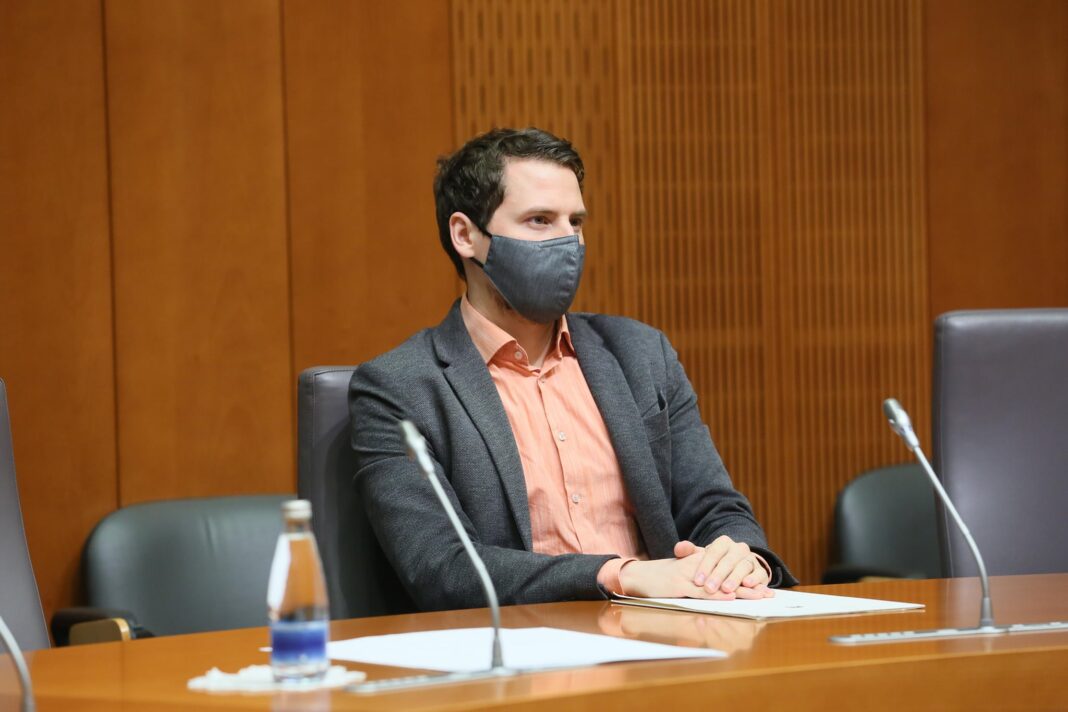By: Sara Kovač / Nova24tv
SDS MP Jure Ferjan addressed a written parliamentary question to the Ministry of Justice, which refers to the increase of pronounced violence against representatives of the legislative branch of the government, from insults, spitting to threats and other violence. Such violence has skyrocketed in the wake of violent protests.
In his parliamentary question, the MP reminded that Article 353 of the Criminal Code (KZ-1) stipulates sanctions for violence against the highest representatives of the state, namely: “Whoever, in order to endanger the performance of tasks in the democratic order or security of the Republic of Slovenia, kidnaps any of the highest representatives of the state, MP, member of the State Council, member of the government, judge of the Constitutional or Supreme Court, or commits any other violence or attacks against him or anyone close to him, his official premises, private apartment or means of transport shall be punished by imprisonment for a term not less than fifteen years.”
Violent protests against the PCT condition and vaccination against covid-19, in addition to destroying the capital, generate hatred towards dissidents and they do that under the pretext of fighting for freedom and human rights, although in fact, they violate, trample, and with insults and threats they incite intolerance and bring discord into Slovenian society, Ferjan critically emphasised and asked the following questions in this regard:
- How many proceedings did an individual court in the Republic of Slovenia dealt with due to (possible) violations of Article 353 of the Criminal Code? How many final decisions have been made and with what epilogue?
- In Article 353 of the Criminal Code, among other things, the phrase or the term “other violence” is used. I am interested in the position or explanation from the Ministry of Justice, what falls under the term “other violence”? Can we classify insults, spitting and threats against members of the National Assembly of the Republic of Slovenia as “other violence”?
- How does the Ministry of Justice assess such legislation, given the current (judicial) practice? Where are the problems or opportunities for improvement?
- What are the penalties for violence against the country’s top representatives in other EU Member States? Please also provide some concrete examples of final decisions.

